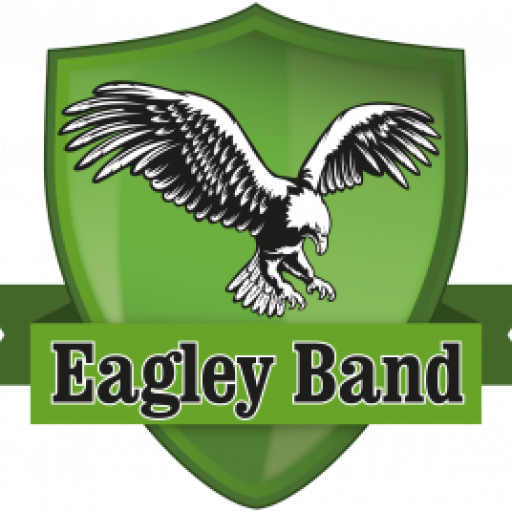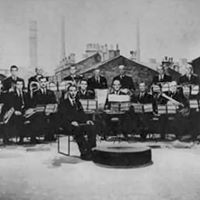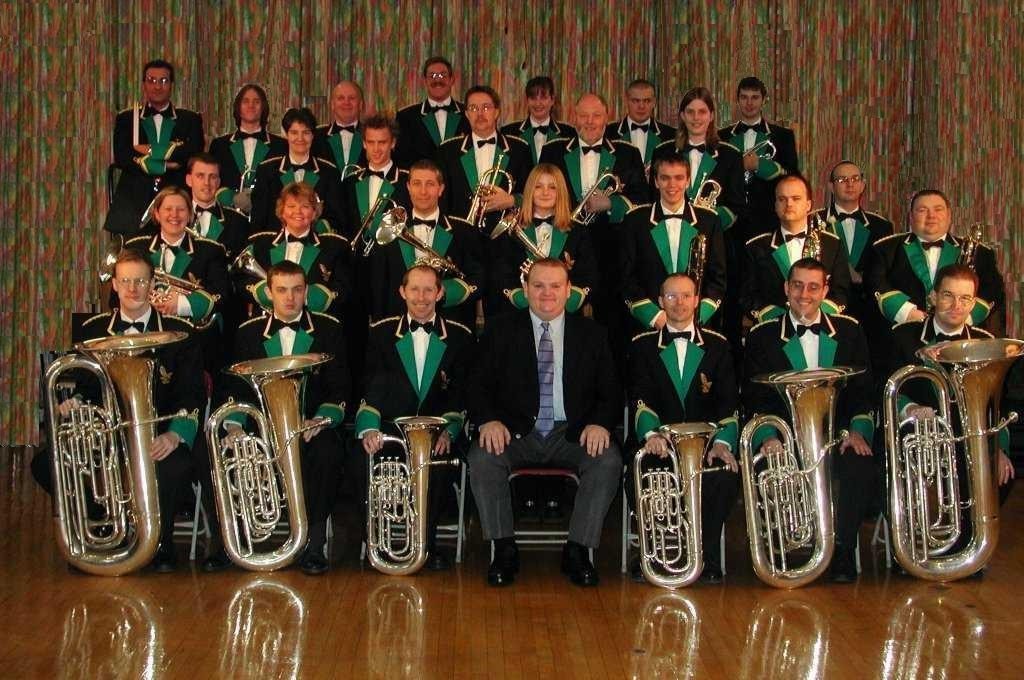Eagley Band was formed in the winter of 1850, initially as the Eagley Sunday School Band, attached to the Eagley Mills, a group of textile mills sited to the north of Bolton, Lancashire.
The band entered their first contest in 1885, which was held at Kearsley Moor and managed to win third prize (and the princely sum of £6) under their conductor Edwin Swift. Swift, along with John Gladney and Alexander Owen, was one of the “Great Triumvirate”, a trio of conductors who played a very important role in the development of bands and band music. He was also credited as being the man who introduced Wagner to brass bands. Despite being in great demand with other ensembles, Swift continued to direct Eagley until his death in 1904. The first surviving photograph of the Band was taken in 1898 and depicts the members in ordinary suits and “billy cock hats”, the first uniform being purchased in 1905. The Band continued to enter competitions and with the dedication of its members became one if the premier bands in the country, notable successes included appearances as far afield as Kirkcaldy and also the famous Belle Vue contest (now known as The Grand Shield) and British Open Championships.
The dawning of the First World War reduced the Bands activities to virtually nothing with many musicians leaving for the front line, and yet Eagley was fortunate to have a fresh pool of talent to draw on from the mills. It was not until late 1919 that the Band resumed playing in full, the only contribution during the War being a lone member who performed the Last Post daily at a memorial service to the fallen. The Second World War also took its toll on the band, although a Youth Band was formed during this time, ensuring the continuation of the Band. The local newspaper reported on their first concert held in the mills in 1945.
Contest success followed the Wars, which in turn led to Radio broadcasts and, in 1956, a television appearance – quite an achievement at that time. By the mid 60s, Eagley were under the leadership of Ernest Appleyard, a Bolton man who has distinguished himself in the army and many of the great bands of the time, playing under such great conductors as Sir Adrian Boult, and Harry Mortimer OBE.
1971 brought grave news – Eagley Mills were to close, bringing the 120 year old association with the Band to an end. Until then, the mills had provided rehearsal facilities within the complex and also the Band’s instruments. Ownership of the instruments was generously transferred to the Band and yet it still found itself without a bandroom or financial backing. Despite this the Band continued to be successful, thanks in part to the support of local schools, most notably Thornleigh College from which a nucleus of players joined in the early seventies, some of whom are still in the Band today.
The band continues to be regularly placed amongst the winning bands in local and national contests. In addition to the successes on the contest stage, the band are now well-known for their achievements in the concert hall and their innovative, challenging and exciting programmes which are proving increasingly popular with audiences everywhere.
The band’s current conductor is Chris Wormald, whose enthusiasm and drive is leading the band to new heights.















